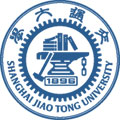|
|
| Overview Submission Committee Event | |
S-ROLE Workshop: Enabling Successful Self-Regulation in Open Learning EnvironmentsIntroduction (Presentation)
A Survey into the Teacher's Perception of Self-Regulated Learning (Presentation)
Exploring the personal and self-directed use of weblogs
Augmenting Simulated Environments by Services for Self-regulated Learning Support. A Baseline Study (Presentation)
Introducing Learning Performance in Personal Learning Environments (Presentation)
Recommending Learning Activities as Strategy for enabling Self-regulated Learning
Self-Regulated Learning in a Mobile Health Initiative for Diabetic Patients
SRL Tasks and Activities as a Model of Cognitive Behaviour within ETTHOS (Presentation)
Supporting Self-Regulated Learning in Personal Learning Environments (Presentation) Discussion
Workshop FormatThe S-ROLE 2012 Workshop takes place on July 6, 10:30-13:00 at CNR in Rome, Italy. It will be an interactive event. Workshop presentations should last 10 minutes, followed by 5 minutes for questions. The second part of the workshop is dedicated to a general discussion and collaborative elaboration of key aspects raised during the workshop. Venue, Travel, and AccommodationPlease find venue, travel, and acommodation information on the ICALT 2012 conference web site. Contact
For further questions or concerns, please contact us via e-mail: srole2012@easychair.org
The project ROLE aims to empower the learner to take control over his or her own learning process. It develops an infrastructure that enables learners to construct their own learning environments according to their personal and contextual needs such as accreditation and corporate goals. The challenge is to implement and test a user-driven framework based on Web 2.0 technologies. ROLE fosters the idea that most learning takes place informally, in different contexts and scenarios, and that content is not provided by one single provider. An outreach programme tries to involve stakeholders who contribute with learning tools and services that are included in a pool from which a learner can choose. |




|
| Design by Svetainių kūrimas | |